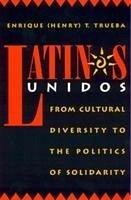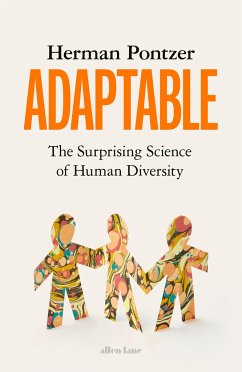Nicht lieferbar

Latinos Unidos
From Cultural Diversity to the Politics of Solidarity
Versandkostenfrei!
Nicht lieferbar
Latinos Unidos presents an unexpected perspective on Latinos-not only as a highly diverse and rapidly growing population in the United States with distinct social, cultural, and economic features-but as a new political force with a cohesive collective ethnic identity. Trueba, using his unique vantage point as a Latino immigrant and scholar, explores the vital issues of personal identity and resiliency, adaptive strategies, and successes of Latinos in North America in this pathbreaking book.













